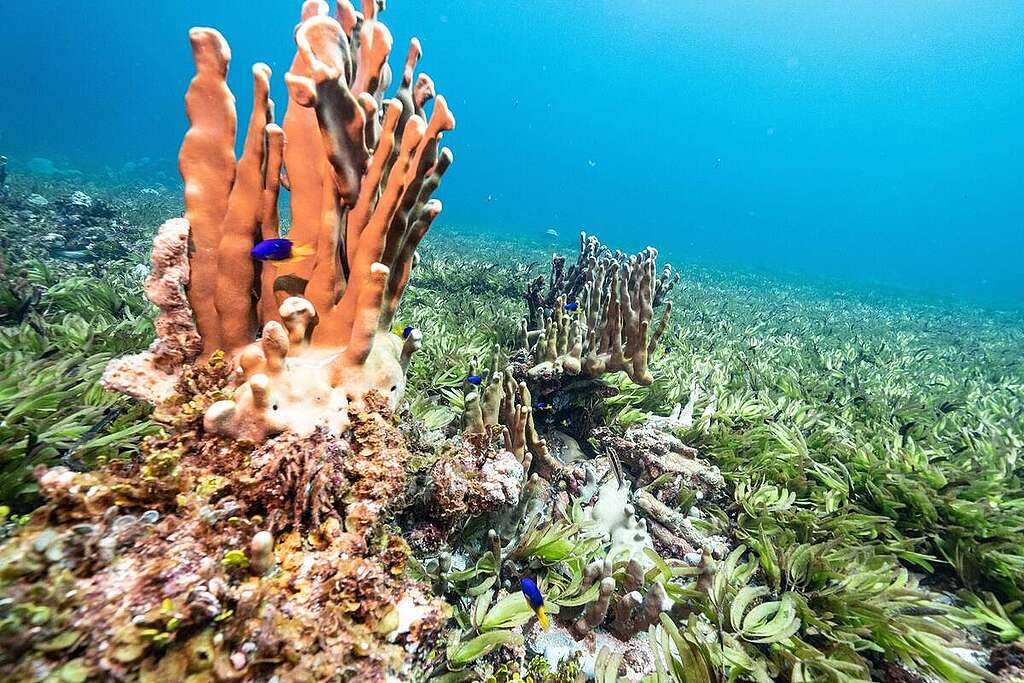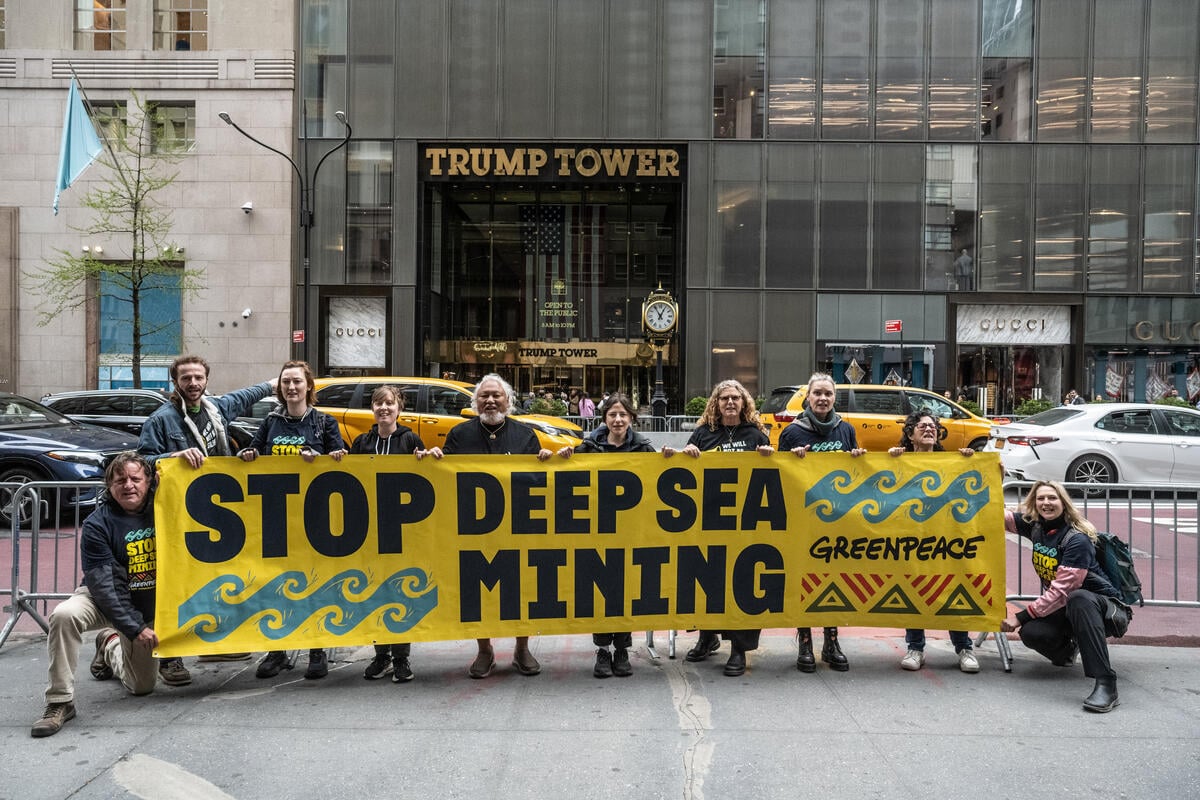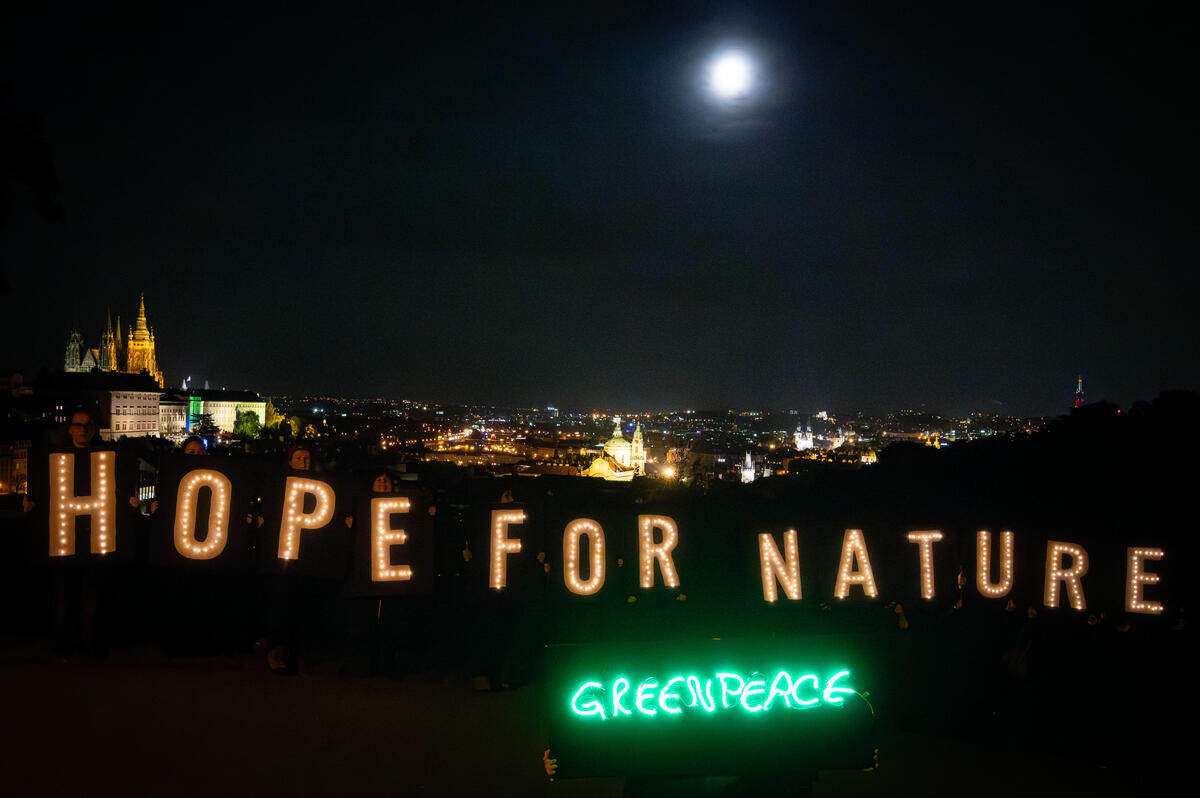Hamburg, Germany – The International Tribunal for the Law of the Sea (ITLOS) announced today, in its advisory opinion, that greenhouse gas emissions are a form of marine pollution under the UN Convention on the Law of the Sea. ITLOS established that to protect and preserve the marine environment, countries have an obligation to keep temperature rise to no more than 1.5°C. This requires the implementation of all necessary measures to mitigate climate change, the regulation of business activities and the restoration and strengthening of the adaptive capacity of ecosystems. ITLOS found that countries that fail to meet those obligations could be held liable.
Louise Fournier, Legal Counsel for Climate Justice and Liability, Greenpeace International said: “The ITLOS advisory opinion marks a significant step forward in international environmental law and the protection of our oceans. It sets a clear legal precedent for addressing climate change through existing international frameworks and reinforces States’ responsibilities to act on climate change. Oceans are the world’s largest carbon sink. Our oceans provide us with food, livelihoods, culture, and half of the oxygen in the atmosphere; they are vital in the fight against the climate crisis and in maintaining all life on the planet. ITLOS confirmed it unanimously: climate change is an existential threat to human rights.”
The ITLOS advisory opinion comes as a response to the efforts of Antigua, Barbuda, Tuvalu, and the Commission of Small Island States on Climate Change (COSIS) and International Law, who submitted two questions on climate change to the Tribunal in 2022 related to government obligations to protect the marine environment and climate change.[1] Small island states have contributed the least to the climate crisis but are facing its worst effects. It is imperative that richer and high-polluting states must take responsibility for their historical and ongoing contribution to climate change.
In its advisory opinion, ITLOS also established that to protect and preserve the oceans from climate change impacts, countries have the duty to take all measures necessary to prevent, reduce and control pollution of the marine environment from any GHG emissions, including in a transboundary setting and in line with the best available science. ITLOS recognised that States must do more than simply meet their obligations under the Paris Agreement and must take a precautionary approach in meeting their stringent due diligence obligations. ITLOS further found that climate change and ocean acidification affect all forms of marine life and require the conservation of living resources and marine life. As the Tribunal found, these obligations are a means of addressing the inequitable situation faced by developing countries, in particular, those most impacted by climate change, such as Small Island Nations.
Laura Meller, Greenpeace’s Protect the Oceans campaign lead, with Greenpeace Nordic said: “Protecting our oceans is protecting our future. Marine biodiversity is the heartbeat of our blue planet, supporting ecosystems that sustain communities and economies. It ensures resilience against climate change, provides essential resources and maintains the balance of our oceans. Today’s groundbreaking ITLOS advisory opinion on climate change should serve as a call to action for States to bring climate-warming emissions to zero, ratify the Global Ocean Treaty and protect marine biodiversity in the face of the climate crisis.”
The ITLOS AO victory follows the landmark European Court of Human Rights decision and the historical hearings at the Inter-American Court of Human Rights. It will also set the stage for the International Court of Justice (ICJ). These international courts and tribunals will clarify the obligations of States to act on climate change under international law for decades to come.
ENDS
Notes:
[1] Request for Advisory Opinion submitted to ITLOS in 2022
[2] Greenpeace International and CIEL’s statement, submitted to ITLOS on 15 June 2023
[3] Greenpeace International’s statement on the UN Global Ocean Treaty
Contacts:
Louise Fournier, Legal Counsel, Climate Justice and Liability, Greenpeace International: [email protected]
Maria Alejandra Serra Barney, Legal Counsel, Climate Justice and Liability, Greenpeace International: [email protected]
Greenpeace International Press Desk: [email protected], +31 (0) 20 718 2470 (available 24 hours). Follow @greenpeacepress for our latest international press releases.

Add your name to call on leaders to create new ocean sanctuaries and protect our blue planet.
Add your name


